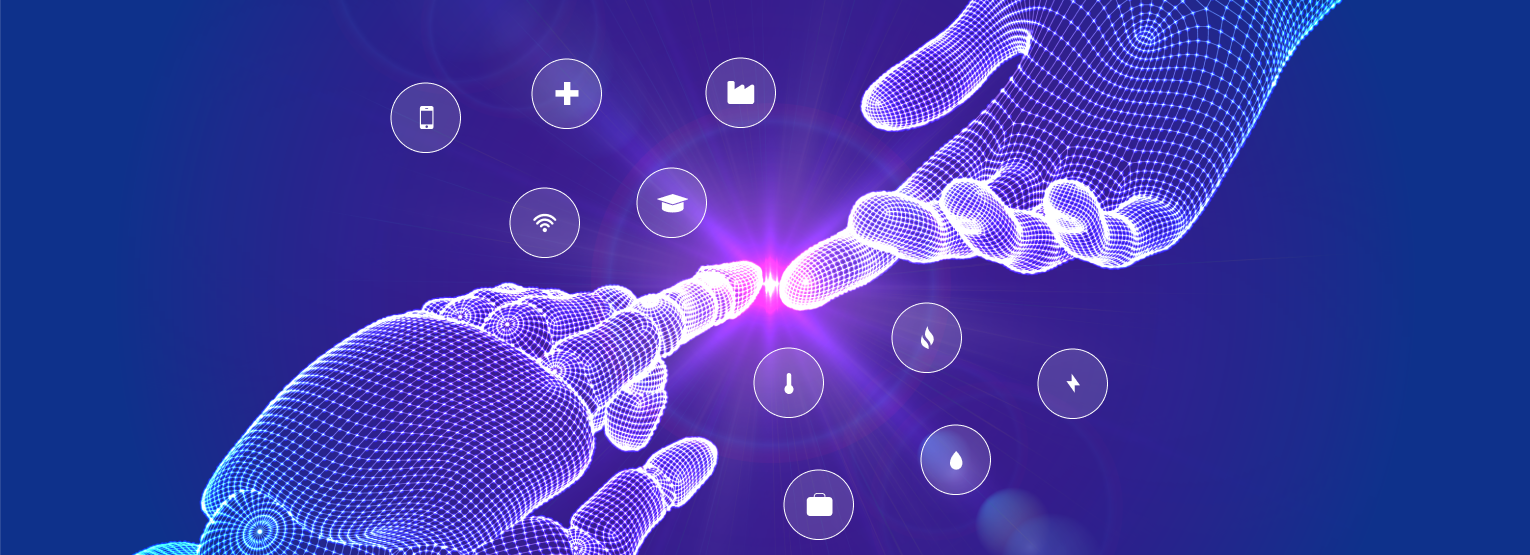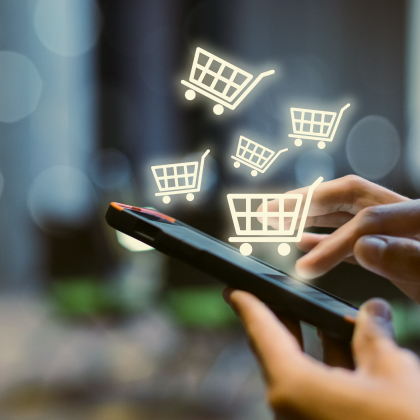The Internet of Things (IoT) is one of the most rapidly developing technologies in the world, and the last decade has seen a huge increase in the adoption of smart devices, both for domestic and business use. This has had a significant impact on our everyday lives, where these innovations are optimizing business processes and systems, as well as enhancing our time spent at home.
Internet of Things: the technology of the future
The Internet of Things is comprised of devices and technologies on several levels:
- smart devices (sensors and devices that collect and transmit data)
- base stations (devices receiving and processing data, which then send it to a server)
- data networks (e.g. LoRaWAN wireless networks)
- servers
- data management software
As technologies evolve, their impact becomes more prominent. By 2025, the IoT will continue to grow rapidly, covering more and more areas. In this article, we will look at the future of IoT technologies.
Smart devices evolution
Smart technologies and the IoT are increasingly affecting various spheres of society and economies, and will continue to do so for the foreseeable future. Staggeringly, it is anticipated that by 2025, the number of connected devices will rise to over 75 billion worldwide, significantly impacting the functioning of businesses and people’s lives.
IoT use cases:
- Smart homes: Through the use of mobile apps, IoT is already helping people control home devices, save energy, and improve security. For example, smart thermostats allow remote regulation of room temperature, and CCTV cameras and locks can be monitored remotely.
- Smart transportation systems: smart traffic lights and traffic sensors are already operating in metropolises such as London and Singapore. This helps to optimize traffic flow, reduce congestion and lower carbon emissions.
- Smart farms: agriculture is also becoming high-tech. For example, in the Netherlands, IoT systems are widely used to monitor soil moisture, light intensity, and fertilizer application. As a result, crop yields are increasing.
Internet of Things forecast for various areas
1. IoT in smart cities 2025
The development of smart cities will be one of the key areas in the evolution of the IoT. These cities will integrate IoT with transportation, lighting, and utility management systems in countries and regions where the technology is not yet widely deployed. According to forecasts, smart systems of control will help cities to reduce energy consumption by up to 30%. The use of smart parking and air quality monitoring systems will also increase.
2. Industrial IoT (IIoT) future trends
In the industrial sector, IoT is driving the transition to Industry 4.0, meaning production lines will become fully automated. IoT devices allow companies to collect and analyze real-time data, optimizing production processes and reducing costs. It is expected that by 2025, more than 80% of businesses will use IoT to monitor equipment and prevent breakdowns in order to avoid downtime.
3. Resource supply
An important area of IoT use will be water, gas, and electricity supply management. Smart meters will enable more accurate tracking of resource consumption, while smart control systems will minimize losses during their transportation. Such smart solutions are already being implemented in a number of countries, and this trend will only intensify by 2025.
4. Medicine
One of the most promising areas of IoT application is medicine. Devices capable of monitoring a patient’s condition in real time and transmitting data to doctors are becoming more commonplace. Wearable devices that track heart rate, blood sugar, and other parameters are already in use. In 2025, IoT will be used for more complex tasks, such as remote disease diagnosis and monitoring patients at home, reducing the burden on hospitals.
5. Agriculture
IoT will continue to evolve in the agriculture sector. Today, farmers are already using drones and sensors to monitor crops and animals. In 2025, smart farms will be automated to an even greater extent, reducing water and fertilizer use, increasing crop yields, and decreasing environmental impact.
6. Education
IoT innovations in 2025 will transform the education sector as well. Smart schools and universities will use the IoT to optimize the learning process. Smart boards, digital libraries, and learning management systems will make education more personalized and interactive. In 2025, these technologies will be implemented in most modern educational institutions.
7. Transportation
Autonomous transportation is becoming feasible due to the integration of IoT and artificial intelligence. Unmanned vehicle technologies are in development and by 2025 will be used in major cities to deliver passengers and goods. IoT-enabled transportation monitoring systems will help reduce accidents, improve traffic management, and reduce carbon emissions.
8. Waste management
Smart technology will also find applications in waste management. Some cities are already using waste bins with smart sensors that report when the container is full, enabling them to optimize the routes of garbage trucks. In 2025, the IoT will be used to create more efficient and environmentally friendly waste management systems.
9. Business
Companies are increasingly adopting IoT to optimize business processes. For example, smart warehouse systems help track the movement of goods and manage inventory in real time. In the future, IoT will be integrated with artificial intelligence, allowing businesses to adapt faster to changing market conditions.
10. Predicting natural disasters and reducing losses
IoT is now being used to monitor natural events such as earthquakes, floods, and hurricanes. In 2025, technology will become even more advanced, enabling timely prediction of natural disasters and implementation of loss mitigation measures.
11. IoT security advancements 2025
Ensuring public safety is a further area in which IoT will play a key role going forward. Smart cameras with facial recognition and monitoring systems for public places are already in use. In the future, such technologies will be used for crime prevention and to provide security at public events.
AI and IoT integration
Integration with artificial intelligence (AI) will be one of the key IoT trends in 2025. This combination will allow IoT devices to not only collect and transmit data, but also to analyze it independently, opening up new opportunities for process automation. For example, AI will help predict equipment breakdowns in factories or identify anomalies in patients’ medical indicators.
The Internet of Things will continue to develop rapidly, and by 2025 its impact will be felt in nearly all areas of society. AI integration will make this technology an even more powerful tool that can significantly improve the quality of people’s lives and optimize business processes.



